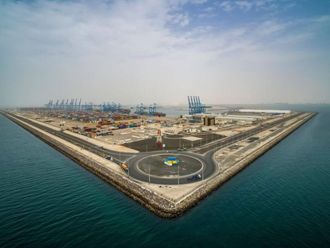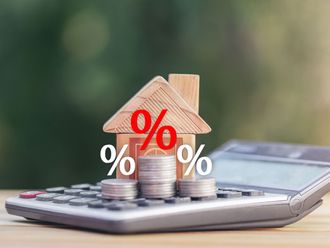The Islamic economy has been on a roll in recent years. Rising Muslim populations, increasing affluence and growing demand for ethical trade have combined to deliver double-digit growth in successive years. But even the most ardent advocates of the Islamic economy admit the Islamic economy is building from a low base. Nevertheless, its upward trajectory is in stark contrast to the conventional global economy, which since the crash of 2008-2009 has been languishing in the doldrums and sees no real signs of recovery to pre-2008 levels.
So is the Islamic economy the answer to the world’s economic woes? Well, yes it could be and no it won’t until those charged with developing the Islamic economy find a solution to the single largest impediment to the Islamic economy breaking out of its silos in the Middle East and south-east Asia. Standardisation is the elephant in the Islamic economy room. Somehow, someway, an acceptable solution, that allows the elephant to roam free in the wider global economy, will have to be found. Otherwise, many economists believe, the Islamic economy will continue to be restricted to pockets of Muslim majority countries or regions.
A report, produced by Oxford Analytica, an international consulting firm providing strategic analysis of world events, entitled ‘Unleashing the Islamic Economy’, takes a detailed look at the role of standards in the growth of the Islamic economy. Produced for the Dubai Islamic Economy Development Centre (DIEDC), the report does not offer solutions to the standardisation conundrum. However, the report highlights the importance of globally accepted standards to the development of the Islamic economy.
The report, based on interviews with thought leaders in the Islamic economy, Islamic finance and the halal foods industry, states: “The overall sentiment is that greater standardisation in both Islamic finance and the halal industry would produce dividends that would benefit the Islamic economy as a whole.” But the report also warns that “excessive standardisation could stifle innovation”, particular in the Islamic finance and halal food sectors.
It is critical that everyone working in the Islamic economy, industry leaders, policymakers and investors, find a way to formulate standards that manage to both successfully reduce risks and generate increased interest, in areas ranging from the secondary market for sukuk to a halal-certified supply chain that will be predictably certified and approved by an array of jurisdictions.
Why is the issue of standardisation so critical to the development of the Islamic economy? The answer is very simple. Without globally accepted standards, across a range of economic sectors, that define what is halal (permissible) and what is not, the development of the Islamic economy will rapidly slow. Standardisation is critically important in the Islamic finance and halal food sectors, which are comparatively young industries, with plenty of room for growth. But without common acceptance of the regulations governing these two key sectors, it would be difficult, if not impossible, to gain the confidence and trust of both Muslim and non-Muslim consumers.
According to Oxford Analytica there was widespread agreement amongst the experts interviewed for its report that the halal foods industry needs much clearer and stronger standards. At present there is no recognised global body that issues standards or accreditation to certification bodies, in the halal food industry. In most cases, halal foods are regulated and certified by country-specific, or local bodies, and many countries have many different certification bodies.
Whilst there is broad agreement that the halal foods industry would benefit from the greater harmonisation of standards among the questions that bodies like the DIEDC are grappling with are: “Should there be a centralised, global system or a more diffused, regional one? Should a long-term goal be the creation of a single, global halal brand and logo, or is that too limiting?”
The answer lies somewhere in the middle. I am not convinced there is the will for a centralised, global system — a one size fits all solution if you like. I believe the answer lies with a framework, which sets out the basic globally acceptable standards but which allows for regional and country specific differences.
Among the ideas being put forward to promote the harmonisation of standards for the halal sector is the creation of a central warehouse of data on the global halal foods industry, a project which the DIEDC is already engaged in taking forward. This would include identifying key points of contact and authorities in every country with a significant halal foods presence. Other ideas the DIEDC is engaging with include ensuring Sharia experts from around the world are involved in discussions to create global standards and accreditation bodies and seeking mutual recognition agreements to facilitate halal trade.
“Achieving the right balance in creating globally accepted standards and developing a more global, or at least regional, accreditation system would significantly contribute to the development of the global halal foods industry by simplifying the process of credible certification and reliable auditing for companies,” according to Oxford Analytica. “It would also contribute to the broader Islamic economy by helping to break into new markets and facilitating interaction between halal foods and other Islamic economy sectors, such as Islamic finance and the hospitality industry.”
The role of standards in the development of the Islamic economy is crucial. But we should be wary of the risk of new regulations, laws or standards that are imposed without a good understanding of the potential impact on the market. This is especially so as Islamic industries tend to operate within conventional economic systems and are subject to their regulatory provisions and governance mechanisms.
That said, if we can achieve the right balance in creating globally accepted standards, including a greater level of enforceability, the harmonisation of the halal foods certification process would help to create a more common language that could facilitate interactions with other sectors of the Islamic economy.
— The writer is the CEO ofDubai Islamic Economy Development Centre












